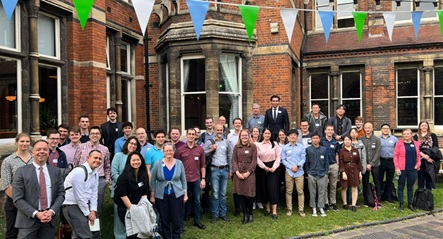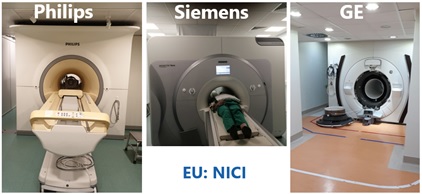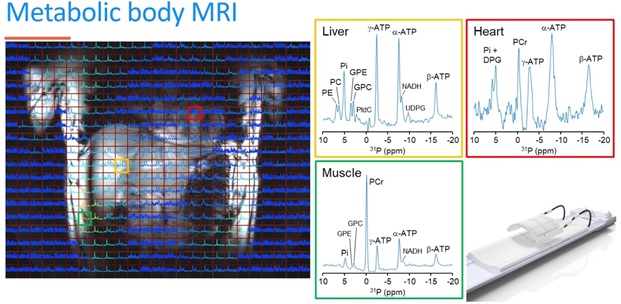Unlocking metabolic insights for enhanced diagnostics and patient care
The NICI project

The NICI project is harnessing the power of high-field MRI scanners to unlock metabolic insights for enhanced diagnostics and patient care. Monitoring metabolic biomarkers is of paramount importance in the field of medicine, as they are rapidly altered by therapies or the onset of diseases. This dynamic responsiveness provides a unique window of opportunity to assess the effectiveness of treatments, enabling clinicians to make informed decisions promptly, potentially sparing patients from ineffective or harmful interventions.
Monitoring metabolic biomarkers is of paramount importance in the field of medicine, as they are rapidly altered by therapies or the onset of diseases. This dynamic responsiveness provides a unique window of opportunity to assess the effectiveness of treatments, enabling clinicians to make informed decisions promptly, potentially sparing patients from ineffective or harmful interventions.

A consortium of UMC Utrecht, IMAGO7, University of Cambridge, NTNU, Amsterdam UMC, TeslaDC, Barthell, Philips, Siemens, and GE has found the relevant biomarkers for assessing chemotherapy in liver metastasis and successfully translated the MRI into a metabolic MRI to reveal these biomarkers non-invasively during the course of the treatment (project 2019-2024).

First results in healthy subjects show reproducible metabolic maps (better than 10%) from the body.

Clinical pilot yin patients receiving chemotherapy for treatment of liver metastasis show clear elevation of cell proliferation (phosphomonoesters over diesters (PME/PDE)) as one of the recognised biomarkers for treatment response.

The NICI project was sponsored by the EU under the FET H2020 program. Its success is now translated into several clinical trials for cancer, heart and muscle diseases (i.e. via IEC-transition MITI)
